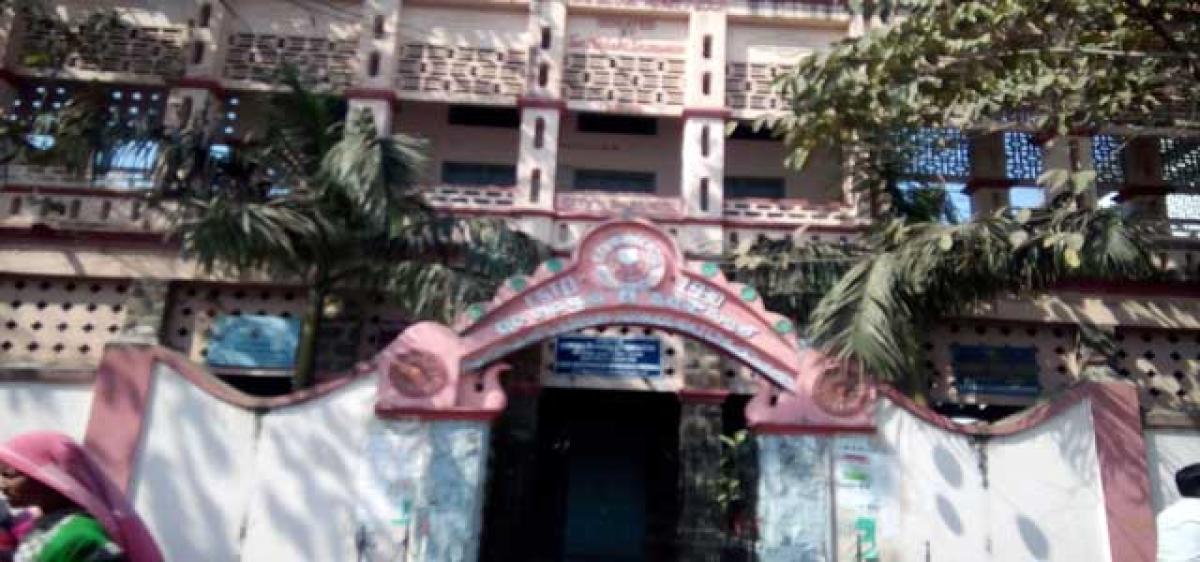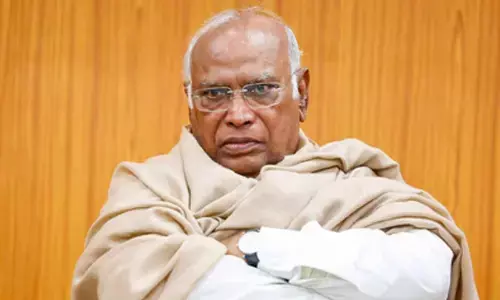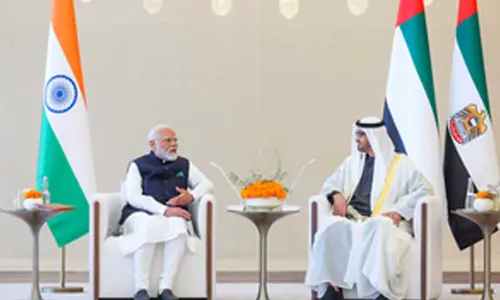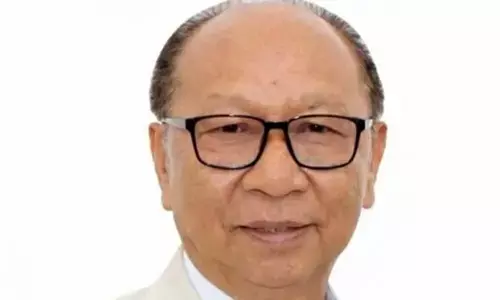The Behrampur connect

Barampuram, which is also called Berhampur and Brahmapur, is a small town in Odisha. It is around 150 kms away from Bhubaneswar, the capital of Odisha and is just 20 kms from the border of Andhra Pradesh.
Berhampur, in Odisha, has been the nerve centre of Telugu literature since the 1900s and it has produced many literary stalwarts
Barampuram, which is also called Berhampur and Brahmapur, is a small town in Odisha. It is around 150 kms away from Bhubaneswar, the capital of Odisha and is just 20 kms from the border of Andhra Pradesh.
As it is on the railway track in between Kolkata and Vizianagaram, it is obvious that the spirit of renaissance that flourished in Kolkata during the 19th century reached Vizianagaram through its gateway.
Gidugu Ramamurthy Panthulu the champion of Telugu Vyavharihika Basha (colloquial language) and the classmate of Gurajada Apparao, the epoch-maker of Modern Telugu literature, lived there.
Gidugu Sithapati, the son of Gidugu Ramamurthy Panthulu led a movement to join the taluq of Parlakimidi in Andhra Pradesh after the Independence as Telugu is the mother tongue of more than half of its population. VV Giri, our former President was also a Telugu man born and brought up in Berhampur.
I got an opportunity to visit Berhampur recently when Vijaychandra, a noted poet and the secretary of Vikasam Literary Association, invited me to participate in their annual day function.
Vikasam was established 46 years ago by the noted short story writer Avasarala Ramakrishna Rao, who resided in Berhampur for more than three decades as he had to go there for employment as an English lecturer in a degree college.
It is obvious that he wrote most of his stories when he stayed there. Berhampur has been the nerve centre of Telugu literature since the 1900s. The first cinema theatre, Sri Sitaram Vilas Talkies was established in Berhampur in 1927.
The modern poet, scholar meet held there in 1933 is a milestone in the history of Telugu literature. Many of the stalwarts like Gidugu Ramamurthy Panthulu, Chilukuru Narayana Rao, Panchgnula Adinarayana Sasthry, Devulapalli Krishna Sasthry, Thallavajjala Sivasankara Sasthry, Indraganti Hanumaschasthry, Thapi Dharma Rao and Sri Sri took part in it and it passed a resolution proclaiming the importance of colloquial language. It is quite natural that Thapi Dharma Rao, who lived here for many years, introduced colloquial language to Telugu films.
A handwritten literary monthly titled ‘Ushakalam’ was started in Berhampur in 1922 and at the request of its editor, Uppala Lakshmana Rao, who was in Germany at that time, wrote a serial novel, ‘Athadu-Aame’. When it was about to be published in a book, his mother pointed out: “It is nothing but the depiction of the trifle scuffles of a husband and a wife.
It would have been better if it is presented at least against the background of the ongoing Independence Movement. Now it is pale and ordinary.”
In his introduction to the novel, Uppala Lakshmana Rao observed that he was alarmed by the remarks of his mother and so rewrote and published it only after the 1950s.
His family itself was like an academy of fine arts like that of Rabindranath Tagore’s. Former Indian President V V Giri was a nephew of Lakshmana Rao.
Sethupathi Adinarayana, a member of Vikasam, showed me the house where Uppala Lakshmana Rao lived in Berhampur and told me that he had the privilege of being the scribe for the novelist as he used to dictate it.
Now the presence of Lakshmana Rao remains merely as a memory as that house was sold away to others and he had no children. Lakshmana Rao recorded his adventurous life, his sojourn in Russia and Germany, his marriage to a Russian lady, Mary Sholinger and his lonely life at Berhampur in the final years in his autobiography – ‘Bathuku Pusthakam’.
Even now Berhampur retains the fragrance of Telugu. Kothakota Kedarnath, the treasurer of Vikasam took me to the City High School, where he studied Telugu. It was established in 1930 and Telugu proverbs are there on the walls of the school throughout.
Adinarayana informed me that the daughter of Balivada Kantharao, a renowned Telugu fiction writer used to live there and then left after her husband’s death. I am surprised to know that the full name of Kantha Rao is Balivada Kantha Rao Patnaik. I remembered Raghunath Panigrahi, who sang the immortal Telugu Film song, “Challaniraja o chandamama”.
I did remember the revolutionary poet Subbarao Panigrahi and the way that the people’s war set an ideal for the movements in Telangana. Above all Chaganti Thulasi, the daughter of Chaganti Somayajulu, the doyen of Telugu short story, lived there as a Hindi lecturer in a local degree college.
It was there that she might have translated Rahul Sankrithyan’s ‘Volga Se Ganga’ into Telugu and ChaSo might have visited Berhampur many times during those years. I am told that G K Murthy who wrote dialogues and songs for many movies of B Vitalacharya hails from Berhampur.
Vikasam’s 47th annual day was held at Andhra Bhashabhivardini Samajam, which was established in 1909 and its premises has a meeting hall, library and an auditorium. It reminded me of the house of Kandukuri Veeresalingam Panthulu in Rajamahendravaram.
The names of the donors on the stone engravings are typically Telugu. The report of the secretary reflected the regular meetings and it is not easy to sustain a literary association for such a long time. Many members conveyed their messages.
There was a literary meet with a small group the next morning in the house of one of its members, Immidisetty Ramesh. Around a dozen people attended and all of them read either a poem or a story.
Vijaychandra, Thurlapati Rajeswari and MSC Gangaraju are well-known writers among them. Vijaychandra is the pen name of Rokkam Chandrasekhara Rao and he published seven poetry anthologies.
Thurlapati Rajeswari has been the active representative of Telugu people of Odisha and she has been attending seminars conducted in the two states of Telugu. Recently she wrote a play depicting the Abhinavandhra Sabha held at Berhampur in 1933.
The other poets who attended on that day belong to different professions. Some of them like Kedarnadh, Ramesh and Thirumala are businessmen. Dr Subhadra worked on the portrayal of Draupadi in Mahabharatha for her PhD and she retired as a Telugu lecturer.
Koka Savithri who studied MA English literature is a retired bank employee and she wrote two biographies one was about her mother and other, a relative, who was a surgeon. The disturbing thing about Vikasam is that there are no young people in it and it clearly reflects the dwindling of Telugu culture there.
Berhampur can come into the mainstream of Telugu language, literature and culture only by following the great example set by the Telugu people of Hosur in Tamil Nadu, who published remarkable short story anthologies depicting their lives in their own dialect.




